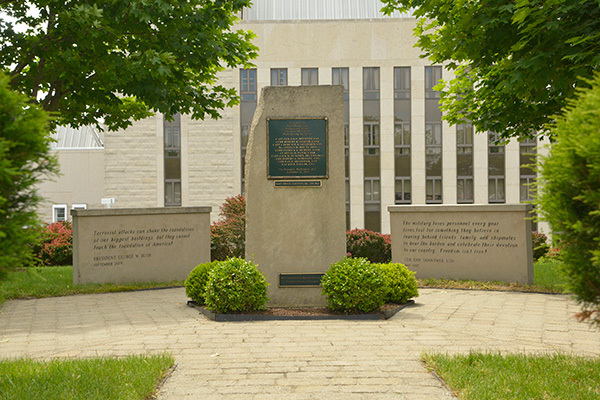Academic Policies
The professional military education programs designed, developed, and delivered by the college are not intended to prepare officers for a specific follow-on assignment, but rather to provide a systematic way to develop leaders and to improve and discipline the way they think. These educational opportunities foster the required mental flexibility and discipline to cope with the intellectual demands inherent in positions of increased responsibility.

Academic Honor Code
The U.S. Naval War College (NWC) diligently enforces a strict academic code requiring students to credit properly the source of materials directly cited in any written work submitted in fulfillment of diploma/degree requirements. Simply put: plagiarism is prohibited. Likewise, this academic code prohibits cheating and the misrepresentation of a paper as a student’s original thought.
Plagiarism, Cheating, and Misrepresentation
Plagiarism, cheating, and misrepresentation are inconsistent with the professional standards required of all military personnel and government employees. Furthermore, in the case of U.S. military officers, such conduct clearly violates the “Exemplary Conduct Standards” delineated in Title 10, U.S. Code, Sections 3583 (U.S. Army), 5947 (U.S. Naval Service), and 8583 (U.S. Air Force).
- Plagiarism: Plagiarism is the use of someone else’s work without giving proper credit to the author or creator of the work. It is passing off as one’s own another’s words, ideas, analysis, or other products. Whether intentional or unintentional, plagiarism is a serious violation of academic integrity and will be treated as such by the command.
- Cheating: Cheating is defined as the giving, receiving, or using of unauthorized aid in support of one’s own efforts, or the efforts of another student.
(Note: NWC reference librarians are an authorized source of aid in the preparation of class assignments but not on exams.) - Misrepresentation: Misrepresentation is defined as reusing a single paper for more than one purpose without permission or acknowledgment.
If written work is submitted that appears to violate the Academic Honor Code, the faculty or staff member will notify the executive assistant of the Department concerned or the Dean, College of Distance Education as appropriate. The Department will investigate the matter to determine whether there is substantial evidence of a violation. If there is substantial evidence, the Chair of the Department or the Dean, College of Distance Educationwill refer the matter to the Dean of Academics.
